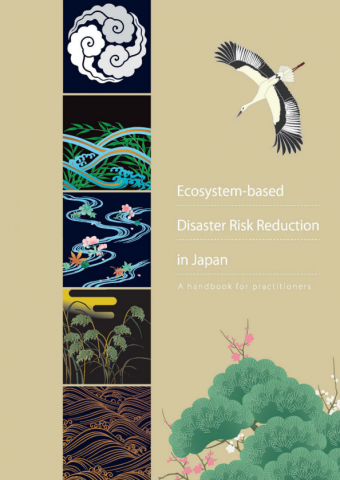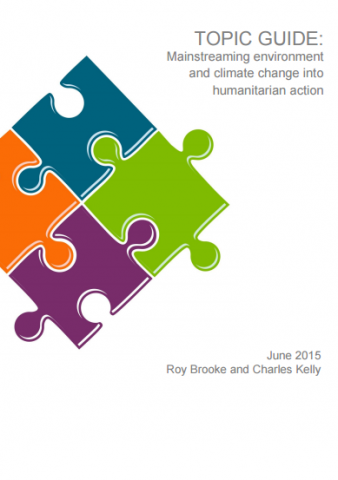Topic guide: mainstreaming environment and climate change into humanitarian action


This topic guide on mainstreaming environment and climate change into humanitarian action is intended for Climate, Environment, Infrastructure and Livelihoods Advisers in the UK Department for International Development (DFID) and other development professionals. It is presented in 4 main sections and includes a glossary, reference list/bibliography, list of relevant organisations, and an annex with additional background information. It includes 5 case studies.
Section 1 provides an overview of the key reasons that environmental and climate change issues are relevant in the context of humanitarian action, including in the initial, life-saving response phase.
Section 2 provides evidence of the relationships between environment, climate change and humanitarian action, describes the relevant humanitarian policies, and identifies key barriers to acting on the relationship.
Section 3 describes the key junctures or ‘entry points’ at which the environment–climate–humanitarian action relationship can be most effectively acted upon, and provides strategies for doing so.
Section 4 provides information on topics of concern to DFID advisers in a humanitarian response. The tables provide general information on the topic area, related environmental issues, typical interventions and additional evidence and information. More background and resources are contained in the Annex. The topics covered include:
- Water, sanitation and hygiene (WASH)
- Shelter
- Food security
- Energy
- Debris and waste
- Land tenure and land use
- Livelihoods
- Climate change
Evidence on Demand, 2015
Topic guide: mainstreaming environment and climate change into humanitarian action
http://www.preventionweb.net/english/professional/publications/v.php?id=44834&a=email&utm_source=pw_email
